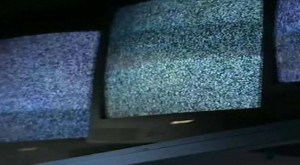Residents of Auburn, Alabama will one day have a choice for cable television service. Incumbent cable company, Charter Cable, which has been in bankruptcy, will eventually face competition from Knology, a cable “overbuilder” servicing more than a dozen cities in the southeastern U.S.
The Auburn City Council unanimously agreed Tuesday night to begin a non-exclusive cable franchise agreement with Knology, based in West Point, Georgia. The cable company already serves several other Alabama communities including Dothan, Huntsville, Lanett, Montgomery, and Valley, and expects approval to construct a system in nearby Opelika shortly.
The decision to bring competition to the city of 56,000 was an easy one because residents demanded more choice:
“Thank goodness this has finally happened. It is time that people in this area had a choice regarding their cable. Charter has provided poor customer service as well as poor cable and internet service for years. I am surprised that my internet has stayed up long enough for me to type this!” — psych1
“This makes my day, now all we need is for satellite to have rights to the local channels and we’ll truly have the competition and choice we deserve…this is a huge step though!” — Matt
“I will dump Charter the second Knology is here.” — lp95
“Now we just need this in Opelika. I hate Charter with all my being.” — jackburnt
“Thank Goodness! Charter is surely the worst cable company in history. I hope nobody reading this fell for their BS “contract” pricing lately. They knew this was coming and tried to tie folks down for at least another year. This is truly a victory for the people of Auburn.” — tboone
“I am glad to see competition is coming in,” Ward 1 council member Arthur L. Dowdell told the Opelika-Auburn News. “I wish there was more coming in.”
One question remains on the table — When will Knology commence service in the area?
Chad S. Wachter, general counsel for Knology, said he didn’t know when Knology will be available for city residents.
“We’ll provide those answers with the city when we get them,” he said.
Ward 7 council member Gene Dulaney, the News noted, encouraged Wachter to build as fast as possible.
Charter Cable representatives followed the usual playbook cable operators use when competition is imminent.
Skip James, Charter’s director of government relations, addressed the council during citizens’ communications to express the company’s support for competition.
“We competed with Knology in the past and we will continue to in the future,” he said.
 Knology provides customers with cable television, telephone and broadband services. Most of their systems offer broadband at around 8Mbps and there doesn’t appear to be a limit. Knology is quietly upgrading their systems to DOCSIS 3 to provide “wideband” service, cable’s designated turn of phrase for next generation broadband speeds. But the company is also following a familiar pattern of not spending the money to upgrade where competitive pressure doesn’t exist.
Knology provides customers with cable television, telephone and broadband services. Most of their systems offer broadband at around 8Mbps and there doesn’t appear to be a limit. Knology is quietly upgrading their systems to DOCSIS 3 to provide “wideband” service, cable’s designated turn of phrase for next generation broadband speeds. But the company is also following a familiar pattern of not spending the money to upgrade where competitive pressure doesn’t exist.
Knology chairman and CEO Rodger Johnson told investors during a 1st quarter 2009 earnings call that the company was prepared to upgrade, but isn’t going to jump the gun.
“We are enabling our markets to deliver Docsis 3.0 when we decide the time is right to push the trigger,” Johnson said. “A very expensive piece of that proposition is the transition of the cable modems to 3.0 cable modems. We will make that move at the time that we’re feeling competitive pressures to move to a 3.0 environment, but not until that time.”
Johnson should be careful about waiting too long. Pinellas County is one of Knology’s service areas in Florida, and it has Verizon FiOS and Bright House Networks fighting for customers in an upgrade war Knology cannot win with slower broadband.
[flv]http://www.phillipdampier.com/video/Knology – Choices Ad.mp4[/flv]
<
p style=”text-align: center;”>Knology “Choices” Ad (30 seconds)


 Subscribe
Subscribe


